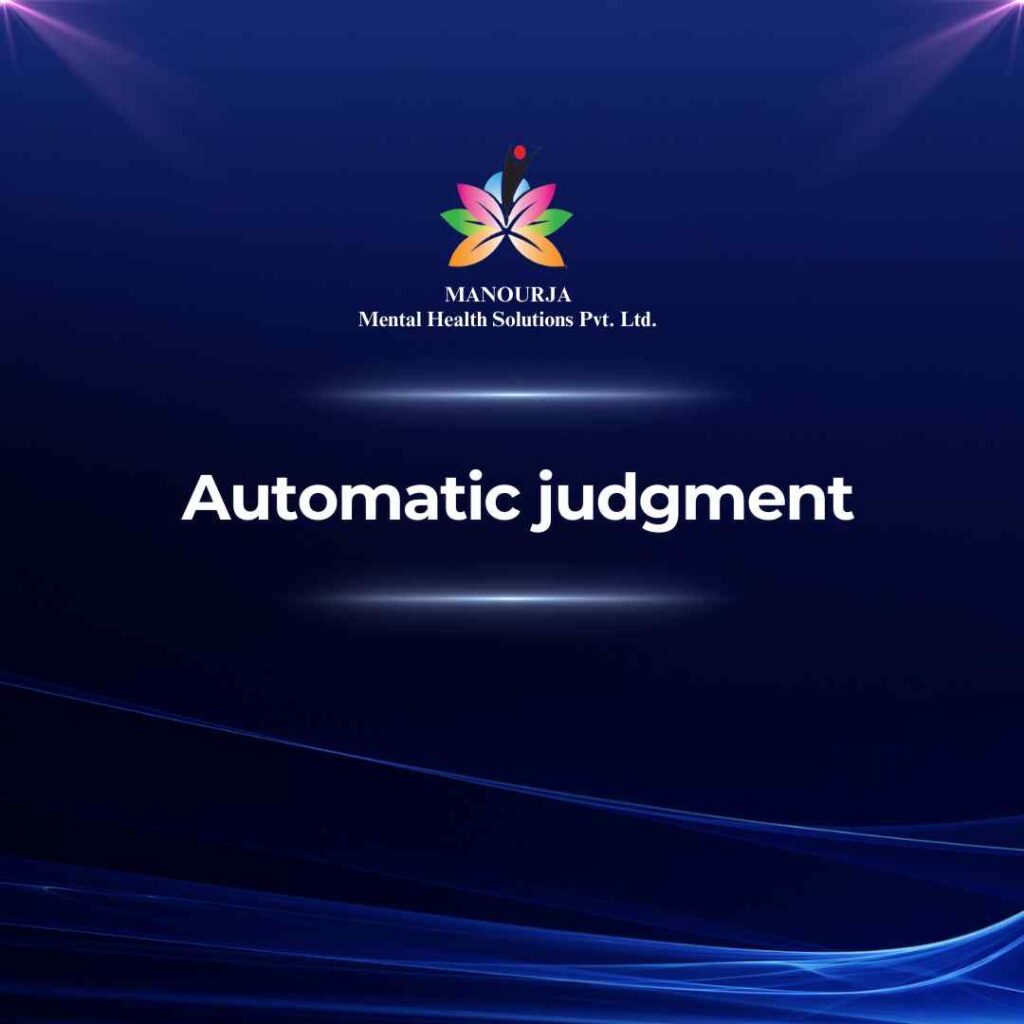Automatic Judgment

Automatic judgment refers to the spontaneous and often subconscious process of forming opinions or evaluations about people, situations, or objects without deliberate consideration or reflection. These judgments can be based on implicit biases, stereotypes, or past experiences, influencing perceptions and behavior without conscious awareness.
Automatic Judgment as a Sign of Mental Illness
Automatic judgment, while a common aspect of human cognition, can become problematic when it leads to distorted or negative perceptions that interfere with daily functioning or relationships. While not inherently a symptom of mental illness, automatic judgments can contribute to or co-occur with certain mental health conditions, exacerbating symptoms or impairing social interactions.
Mental Health Conditions Associated with Automatic Judgment
- Individuals with anxiety disorders may engage in automatic judgments characterized by hypervigilance, excessive worry, and catastrophic thinking, leading to heightened perceptions of threat or danger in various situations.
Depressive Disorders
- Automatic negative judgments and self-critical thoughts are common features of depression, contributing to feelings of worthlessness, hopelessness, and pessimism about the future.
Obsessive-Compulsive Disorder (OCD)
- OCD can involve intrusive thoughts and automatic judgments related to fears or concerns about contamination, harm, or moral integrity, leading to compulsive behaviors aimed at reducing anxiety or preventing perceived harm.
- Certain personality disorders, such as borderline personality disorder (BPD) or paranoid personality disorder, may involve automatic judgments characterized by mistrust, suspicion, or hostility toward others, leading to difficulties in forming and maintaining relationships.
Post-Traumatic Stress Disorder (PTSD)
- Individuals with PTSD may engage in automatic judgments related to past traumatic experiences, leading to hypervigilance, avoidance behaviors, and negative perceptions of safety and trust.
While automatic judgment itself is not a mental illness, addressing maladaptive or distorted cognitive processes is an important aspect of treatment for individuals with mental health conditions. Psychotherapy, cognitive-behavioral interventions, mindfulness practices, and cognitive restructuring techniques can help individuals recognize and challenge automatic judgments, promoting more adaptive and balanced perceptions of themselves and others.
At MANOURJA, we believe in the transformative power of counseling. Our experienced therapists offer a safe and supportive space where you can explore your thoughts, emotions, and challenges. Through personalized counselling sessions, we’ll work together to develop coping strategies, build resilience, and achieve lasting positive change. Discover the path to a healthier, happier you with MANOURJA counselling services.
MANOURJA Rehabilitation Services
At MANOURJA, we’re dedicated to helping you in rebuild your life, after difficult times. Our rehabilitation services focus on understanding what you need to move forward, whether you’re recovering from addiction, trauma, or any psychological – social challenges. We create personalized plans, that are all about helping you, regain your strength and find hope again. With a caring team by your side, you’ll have the support to make real progress and take steps toward a brighter, healthier future.
